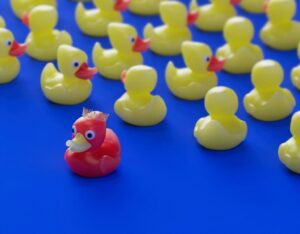If you’re studying science, then you know that a hypothesis is an educated guess about what might happen during an experiment. It’s the foundation of your research, and if it’s not solid, the results won’t be valid. But How to Write a Hypothesis in 6 Steps? In this article, we’ll show you how to create a strong hypothesis for any scientific project.

What is a Hypothesis and Why Should You Write One
A hypothesis is an educated guess or statement that predicts the outcome of an experiment or study. It is a crucial element in academic research because it helps researchers organize and conduct their experiments effectively. With a clear hypothesis in mind, researchers can design their research methods to test their theory, collect relevant information, and analyze the data collected. Writing a hypothesis is a necessary step towards creating a compelling argument and conclusion.
A well-drafted hypothesis should be testable, measurable and specific, guiding the researcher towards a definitive conclusion. In essence, a hypothesis is a roadmap that directs researchers towards finding the solution to their research question. By crafting a well-informed hypothesis, researchers can make confident inferences about the results of their experiments.
Benefits of Writing a Hypothesis
Writing a hypothesis can be an essential step in any research project. This is because it allows you to formulate a clear and testable statement that predicts a relationship between variables. The benefits of writing a hypothesis include:
- Providing focus and direction to your research project
- Giving you a framework to design your experiments
- And helping you to evaluate and interpret your data effectively.
By having a well-written hypothesis, you can also communicate your research more clearly to others and contribute to the advancement of knowledge in your field. Moreover, a hypothesis can help you to identify any flaws in your research design or any potential problems with your data collection, which can improve the validity and reliability of your results.
Overall, writing a hypothesis is a crucial step in any research project, and it should not be overlooked if you want to produce high-quality research outcomes.
How to Formulate Your Hypothesis
When conducting any scientific research, formulating a hypothesis is a crucial first step. A hypothesis is an educated guess about the solution to a problem or the explanation for an observation. A well-formulated hypothesis is testable and must be based on prior scientific knowledge, which is where research begins. The process of formulating a hypothesis is not an exact science, as it requires creative thinking and problem-solving skills. However, it is essential to create a hypothesis that is specific, measurable, and clear.
By having a robust hypothesis, you will have a clear idea of what you want to investigate, and it will guide you through the research process towards your end goal. Whether you are conducting research for a school project, a dissertation, or a scientific study, a well-formulated hypothesis is vital for success.
6 Steps for Writing a Hypothesis
Writing a hypothesis is a relatively straightforward process that involves the following steps:
1. Start with a question: The first step in formulating your hypothesis is to identify the research problem or question you want to explore. It should be something that can be tested and answered by collecting data through experimentation or observation.
2. Do some background research: Before you start formulating your hypothesis, it’s important to read up on the latest scientific literature related to your topic. Researching the existing knowledge in your field will provide you with a clearer understanding of what has already been done, as well as help you come up with interesting ideas for your own project.
3.Brainstorm possible answers: Once you have a clear idea of the research problem and background information, it’s time to start brainstorming possible answers or explanations for the research question. This can be done by considering different possible causes or effects, exploring potential relationships between variables, and identifying any gaps in the current knowledge.
4. Craft your hypothesis: After you have identified a few potential answers to the research question, it’s time to craft your hypothesis. The goal is to create an informed statement that can explain a relationship between two variables. It should include an independent variable (the factor you are manipulating) and a dependent variable (the factor that changes as a result of manipulating the independent variable).
5. Test your hypothesis: Once you have crafted your hypothesis, it’s time to start testing it! Depending on the type of experiment or study you are conducting, there may be different methods you can use to test the validity of your hypothesis.
6. Analyze and draw conclusions: After you have collected data from your experiments or observations, it’s time to analyze the results and see if they support or reject your initial hypothesis. Based on the outcome of your tests, you will be able to draw meaningful conclusions about the research problem.
Conclusion
A hypothesis is a necessary first step in any scientific research project. It helps you to narrow down your research question and provides you with a direction for your experiments or observations. By following these 6 steps, you should be able to write a well-formulated hypothesis that will guide the rest of your research project. Good luck!
FAQs
Q: What is a hypothesis?
A: A hypothesis is an educated guess or prediction about the relationship between two variables. It’s based on existing knowledge and can be tested through experimentation, observation, or further investigation. Hypotheses help scientists and researchers develop meaningful conclusions that add to existing knowledge within an area of study.
Q: Why is it important to write a hypothesis?
A: Writing a hypothesis helps researchers organize their ideas and provides direction for experiments or investigations. A well-crafted hypothesis will answer specific questions about why something happens or doesn’t happen in certain conditions. This can then be used to draw conclusions from data collected during an experiment or investigation.
Q: What should I do with my hypothesis once I’ve written it?
A: Once you’ve written a hypothesis, the next step is to design an experiment or observation to test your hypothesis. During this stage, it’s important to consider all possible variables that could affect the outcome of your experiment or observation as well as what type of data you need to collect in order to draw meaningful conclusions from your results.
After collecting data, you will analyze your results and draw conclusions based on what your results show. Finally, you can make recommendations for further study based on what has been learned from conducting the experiment or investigation.
By following all of these steps, it is possible to draw meaningful conclusions from your data that add to existing knowledge within an area of study.
Q: What should I avoid when writing a hypothesis?
A: When writing a hypothesis, it’s important to avoid making assumptions about why something happens or does not happen in certain conditions. It is also important to make sure that your hypothesis is testable and specific so that it can be evaluated through experimentation or observation. Furthermore, it’s important to keep in mind that hypotheses are always subject to change depending on the results of an experiment or investigation.
Q: Where can I get more information on how to write a hypothesis?
A: There are many online resources available that provide additional information on how to write a hypothesis. These resources include articles, tutorials, and videos with step-by-step instructions for writing a scientific hypothesis. Additionally, many universities offer courses in research methods which also provide helpful tips for crafting an effective hypothesis. Finally, talking with other scientists or researchers who have experience in the field is another great way to learn more about writing a good hypothesis.
By taking advantage of all of these available resources, it is possible to learn more about how to write a hypothesis and effectively execute an experiment or observation.





